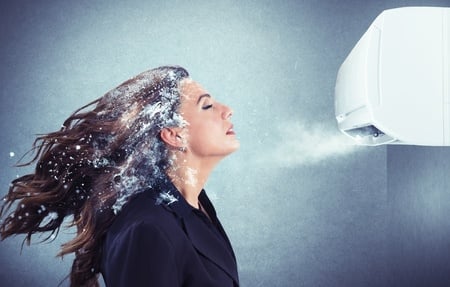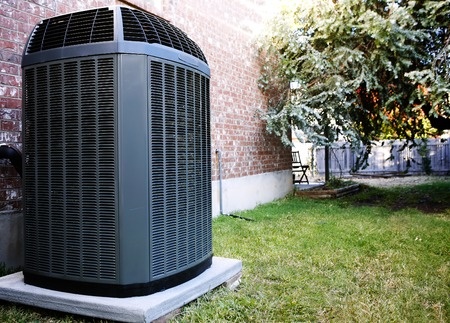As the COVID-19 pandemic keeps on, more and more people are worrying about its spread and mutations. With the new delta variants people are concerned about hospitalizations and future lockdowns. With that being said, there’s a lot of information out there regarding COVID and its potential spread. Here Fritts Heating & Air discusses COVID-19 and its potential spread through your HVAC system.
COVID-19 Transmission
COVID-19 is transmitted through contact with respiratory fluids carrying the infectious virus. A person can be exposed by an infected person coughing or speaking near them. They can also be exposed by inhaling aerosol particles that are spreading from an infected person. Transmission of COVID-19 from inhalation of virus in the air can occur at distances greater than six feet. Particles from an infected person can move throughout an entire room or indoor space.
COVID-19 is spread in three main ways:
- Breathing in air when close to an infected person who is exhaling small droplets and particles that contain the virus.
- Having these small droplets and particles that contain virus land on the eyes, nose, or mouth, especially through splashes and sprays like a cough or sneeze.
- Touching eyes, nose, or mouth with hands that have the virus on them.
HVAC & COVID-19
Well-functioning HVAC systems can help by removing and diluting aerosols that may contain viruses from indoor spaces. With that being said, HVAC systems will NOT eliminate the risk of COVID-19 transmission during close contact exposures. Ventilation and air movement have been associated with transmission of various infectious diseases, such as tuberculosis and measles. A multidisciplinary review on COVID-19 and HVAC found that more evidence is needed to provide recommendations about the potential role HVAC systems play. The review also acknowledged its role in air distribution, and its impact on transmissions. Only a few studies to date specifically examine the role of HVAC systems in COVID-19 transmission, and no evidence was found associating transmission with central HVAC systems. However, there are many studies on ventilation related factors that demonstrate the risk from inadequately ventilated indoor spaces, as well as studies that have documented transmission under circumstances of likely inadequate ventilation, as discussed below.
Proper Ventilation Can Help
An important approach to lowering the concentrations of indoor air pollutants or contaminants is to increase ventilation. Ensuring proper ventilation with outside air can help reduce the concentration of airborne contaminants, including viruses, indoors. Proper ventilation also reduces surface contamination by removing particles before they land on surfaces. However, by itself, increasing ventilation is not enough to protect people from COVID-19. When used along with other best practices recommended by CDC and others, increasing ventilation can be part of a plan to protect people indoors.
Upgrade Your HVAC
Fritts Heat & Air is a reliable Heating & Air service and HVAC contractor with over 20 years of experience. We provide Atlanta and North Georgia with expert heating and air conditioning services. If you need HVAC services in Atlanta, GA and throughout North Georgia, you can rely on us for your HVAC repairs and installation for residential and commercial properties. Since our inception, our philosophy is to provide our customers with quality and affordable HVAC services through professionalism and honesty.





